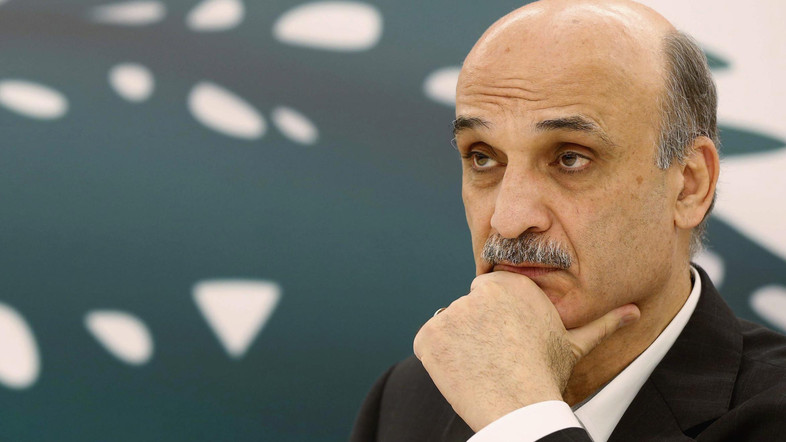Beirut – Head of the Lebanese Forces Samir Geagea blamed Iran for several regional conflicts, saying that it acts against the legitimacy of those countries.
He told Asharq Al-Awsat on Friday: “Where ever Iran puts its finger, problems follow.”
In Yemen, he said, there was a slow political process, which the Houthis were a part of, and people seemed to have forgotten that President Abdrabbuh Mansur Hadi was elected with an overwhelming majority.
In Syria, had it not been for Iran’s backing of regime leader Bashar Assad, he would not have stayed in power. Iran helped him until the conflict turned into a civil war, added Geagea.
“In Lebanon, we witnessed a civil war and it ended. We agreed on the formation of the state through the Taef Accord. All armed groups were incorporated in the state, except Hezbollah because Iran agreed with the Syrian regime for it to stay,” he said.
On the overall Arab scene, the Lebanese official predicted a state of “complete war” with Iran, noting Saudi deputy Crown Prince Mohammed bin Salman’s recent comments on the matter.
Asked about whether Tehran will seek to bolster its regional presence in wake of the arrival of a new US administration, Geagea said: “We have seen some form of American action and Arab countries are making their moves based on this action in order to fortify their positions.”
“We have not yet seen the Iranian attack. I do not expect it to remain idle, but they cannot retaliate against the US in Iraq because they need them. Their retaliation may come in Syria because they are sitting comfortably in Lebanon.”
Turning to the Lebanese Forces’ ties with Hezbollah, Geagea noted that it has a “fundamental dispute” with the party.
“I have not seen whether they have been embroiled in any sort of corruption, but the problem is that they are prepared to cover up this corruption because ‘no voice can rise above that of the battle’,” he said.
“One of the central disputes is that our priority is Lebanon, not the voice of that battle. Their agenda is much larger than the protection of minorities. It has nothing to do with that, but they want to establish an actual Islamic republic on a global level. What we are witnessing is the first steps of this agenda.”
“Our priority is protecting the economy and preventing corruption. Hezbollah’s priority is the battle in Syria, Iraq and the region. They are at the heart of the regional axis and not a part of it,” Geagea stressed.
On Hezbollah’s role in Syria, the Lebanese leader said: “They not only committed a strategic error, but a historic one, which the Shi’ites will pay for for generations to come.”
“They have placed a major wager on Assad, but it is not viable. We were able to prevent the dangers of the Syrian crisis from coming to Lebanon, but they went to Syria.”
He said that Hezbollah’s intervention in Syria has direct and indirect repercussions on Lebanon, especially the national economy.
“Had it not meddled in Syria, we would have avoided all American sanctions and we would have avoided the Gulf boycott,” Geagea added, noting however that the situation in Lebanon will remain stable “because there are no intentions to target it for now.”
Turning to the internal Lebanese scene and assessing the first six months of President Michel Aoun’s term in office, Geagea remarked: “In general, I am not happy, but compared to the two years of vacuum we experienced, I can say it is better.”
He said efforts should be exerted to achieve more transparency in the state, combat corruption and reach an agreement on a new parliamentary electoral law.
“Then we can speak of good start to the president’s term and we will be able to give it a better assessment,” Geagea stressed.
On the electoral law and fears of parliament’s extension of its term for a third time, the Lebanese Forces chief said that the media is exaggerating the extent of the crisis, adding that officials are aware of how critical the situation is.
“An agreement will be reached over a new law before the real red line is reached,” he predicted, but he did not say which law will be adopted.
“Regardless of which law is approved, parliamentary elections will be held next fall unless something unexpected takes place,” he asserted.
